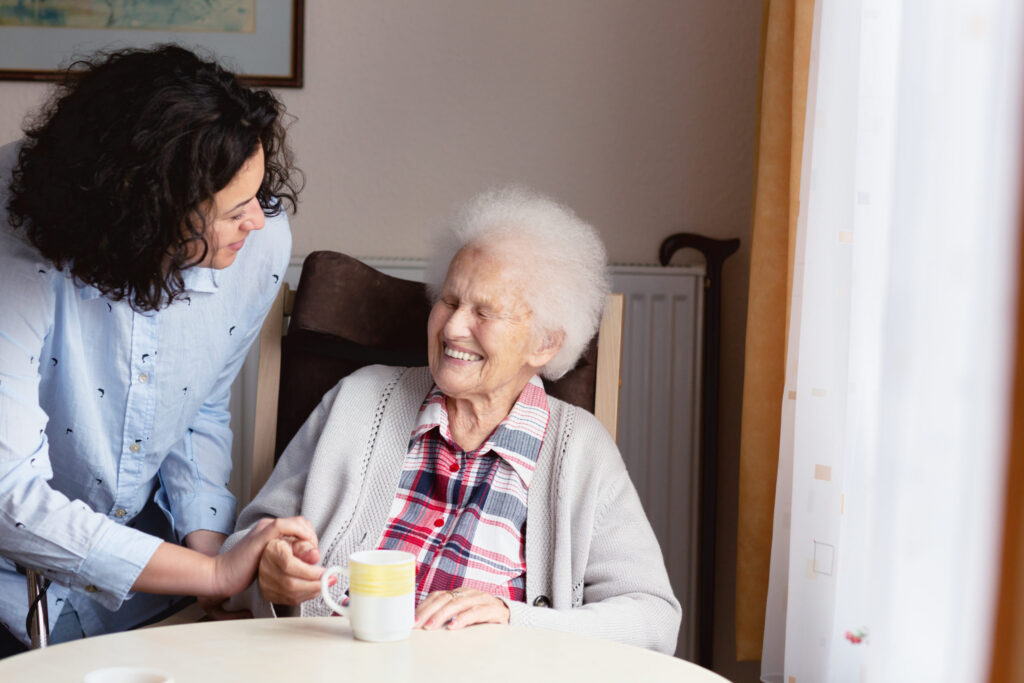Introduction:
June is not just a month of blooming flowers and warmer weather; it’s also Alzheimer’s and Brain Awareness Month. This annual observance serves as a crucial reminder of the challenges faced by millions worldwide living with Alzheimer’s disease and other forms of dementia. In the realm of elder care, this month holds particular significance as caregivers, healthcare professionals, and communities come together to raise awareness, offer support, and empower minds affected by cognitive decline.
Understanding Alzheimer’s and Dementia:
Alzheimer’s disease, the most common form of dementia, affects memory, thinking, and behavior, gradually impairing individuals’ ability to carry out daily tasks independently. Dementia, a broader term, encompasses various conditions characterized by cognitive decline, including Alzheimer’s. Both Alzheimer’s and dementia not only impact the individual but also pose significant challenges for caregivers and families.
Empowering Minds through Education:
Education is key to empowering both caregivers and those affected by Alzheimer’s and dementia. During Alzheimer’s and Brain Awareness Month, educational initiatives take center stage, providing valuable information about the diseases, their progression, available treatments, and caregiving strategies. Workshops, seminars, and online resources offer insights into managing symptoms, enhancing communication, and maintaining quality of life for both patients and caregivers.
Supporting Caregivers:
Caregivers play a vital role in the lives of individuals living with Alzheimer’s and dementia. However, caregiving can be emotionally and physically taxing, leading to burnout and stress. Alzheimer’s and Brain Awareness Month shines a spotlight on the needs of caregivers, offering support groups, counseling services, and respite care opportunities. By providing caregivers with the tools and support they need, communities can help alleviate some of the burdens associated with caregiving, enabling them to better care for their loved ones while also taking care of themselves.
Promoting Brain Health:
While there is currently no cure for Alzheimer’s or dementia, there is growing evidence that certain lifestyle factors can reduce the risk of cognitive decline. Alzheimer’s and Brain Awareness Month encourages individuals to adopt brain-healthy habits, such as regular exercise, a balanced diet, social engagement, and mentally stimulating activities. By promoting brain health initiatives, communities can empower individuals to take proactive steps towards reducing their risk of developing dementia later in life.
Advocating for Research and Innovation:
Research is crucial in the fight against Alzheimer’s and dementia. Alzheimer’s and Brain Awareness Month provides an opportunity to advocate for increased funding and support for research initiatives aimed at better understanding the diseases, developing effective treatments, and ultimately finding a cure. Through fundraising events, awareness campaigns, and grassroots advocacy efforts, communities can contribute to advancing the field of Alzheimer’s research and bringing hope to millions affected by the disease.
Fostering Dementia-Friendly Communities:
Creating dementia-friendly communities is essential for ensuring that individuals living with Alzheimer’s and dementia can continue to participate actively in society. From accessible public spaces to dementia-friendly businesses and services, communities can take steps to support and accommodate the unique needs of individuals with cognitive impairment. Alzheimer’s and Brain Awareness Month serves as a catalyst for raising awareness about the importance of dementia-friendly initiatives and fostering inclusivity and understanding within communities.
Conclusion:
Alzheimer’s and Brain Awareness Month is a time for reflection, education, and action. By raising awareness, providing support, promoting brain health, advocating for research, and fostering dementia-friendly communities, we can empower minds affected by Alzheimer’s and dementia and work towards a future without these devastating diseases. As we recognize the challenges faced by individuals living with cognitive impairment and their caregivers, let us also celebrate their resilience, strength, and unwavering spirit in the face of adversity. Together, we can make a difference in the lives of those affected by Alzheimer’s and dementia, one empowered mind at a time.

